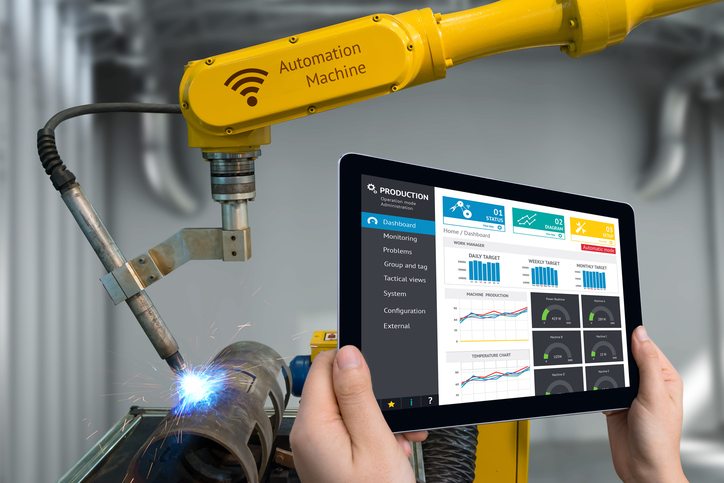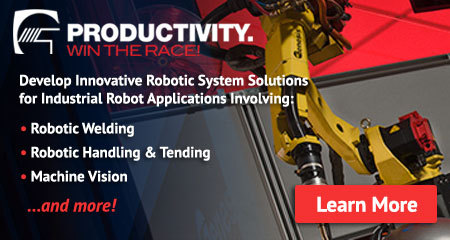How the IIoT and Industrial Robotics are Evolving

The industrial internet of things (IIoT) has been making its way into more and more factories across the industrial sector, with robotic automation systems being one of the main vehicles of connectivity and new capabilities. The IIoT has transformative potential in the industrial sector – the evidence of this is clearly seen in the way industrial robots are evolving.
Industrial robots in some of the most innovative, forward-thinking factories are taking important technological steps forward. The robots used by today’s manufacturers can do much more than they used to, and their increasing capabilities could change the future of industrial production.
Industrial Robotics: Today’s Trend of Connectivity
The IIoT is driving significantly higher levels of connectivity in today’s factories, especially in robotic automation systems. This connectivity enables major productivity improvements and enhances return on investment (ROI) on automation equipment.
Oshkosh Defense, a defense transportation vehicle manufacturer, is a great example of what robotic connectivity can do. A few years ago, existing robotic welding systems were not achieving desired output or productivity levels. In response, a cloud-based software system was implemented to track critical robot and weld parameters, workcell performance, file backups, alarm histories, frequency reports, diagnostics and more. The result was a highly connected industrial robotic welding system.
In the end, Oshkosh Defense saw a 20% increase in workcell uptime and significantly improved productivity. In fact, Oshkosh Defense claims their cloud-based software is a major factor in their competitiveness and their ability to serve customers.
Industrial Robotics: Tomorrow’s Agile Production
Compared to what’s on the horizon, today’s factories are rigid and linear. Any shift in production as a response to consumer behavior or market trends is time-consuming and costly. Once factories become fully connected, as current trends seem to suggest will happen, the story will be much different.
Full 360-degree connectivity allows for transparent process analysis, straightforward system optimization and much quicker programming. All of this creates much needed flexibility in robotic systems, leading to a production process that is much more closely aligned with real-time demand and can shift processes much more easily. This connectivity will help manufacturers maximize the productivity potential of automation equipment and streamline their supply chains, creating huge operational savings.
While this may seem like a distant future, Industry 4.0 is happening here and now. The IIoT represents the cutting-edge of robotic technology, often requiring highly knowledgeable and experienced robot integrators to achieve productive systems.
Genesis Systems Group is a recognized leader in industrial robotic integration. See how Genesis’ has reliably produced game-changing robotic systems for automotive manufacturers.
Posted in Robotic Integration
